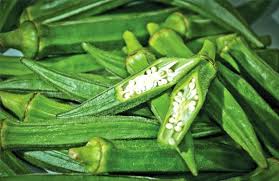Porphyromonas gingivalis (P. gingivalis) is an anaerobic Gram-negative bacterium in the oral cavity that plays an important role in the pathogenesis of periodontitis as a cause of inflammation which can damage the tissue that supports the teeth which can eventually cause tooth loss. P. gingivalis correlated with chronic periodontitis because it has the ability to avoid host immunity without inhibiting the inflammatory response that occurs so it is beneficial for the presence of P. gingivalis and other periodontal bacteria where gingival crevicular fluid is an important source of nutrition because it contains peptides and iron. One of the virulence of P. gingivalis is adhesin and repressors such as fimbriae, hemagglutinin and proteinase.
Histatin is a peptide originating from the human salivary gland with antimicrobial and anti-inflammatory activity. Histatin 5 binds to hemagglutinin B (HagB) found in P. gingivalis and decreases the role of HagB chemokine induced in human dendritic cells, in addition histatin 5 is able to reduce chemokine responses that play a role in helping control inflammation in the oral cavity. Porphyromonas gingivalis (Pg) produces a large amount of cysteine arginine and lysine proteinase which is specific in the form of cells and secretions. The use of synthetic drugs is not only expensive for the treatment of a disease but also has toxicity and adverse side effects. This type of situation causes the need to look for alternative new drugs to treat an illness. Herbal alternatives have enormous potential to be developed to new drugs that are very beneficial for treatment and powerful and effective antibacterial agents. Okra fruit has many benefits, this is because okra contains secondary metabolite components such as alkaloids, terpenoids, flavonoids, etc. 10 Flavonoids are found in plants known for their antibacterial effects because of their ability to reduce bacterial cell wall permeability.
Gingivalis (Pg) sample was obtained and cultured in the Brain Heart Infusion Broth (BHIB). BHIB containing Pg were incubated 1 x 24 hours at 37°C after being diluted according to 0.5 McFarland standard (1.5×108 CFU/ ml), then the bacteria were ready for testing. Fresh okra fruit from Materia Medica, Batu- Malang for extract were prepared. Okra fruit samples were cut into pieces and weighed as much as 200 grams then put in a jar container and 70% ethanol was added as much as 300 ml and macerated for 24 hours at room temperature After 24 hours, the solution was filtered or separated using a Buchner filter. The filtering residue is aerated and maceration process was repeated up to 3 times.
All distilates are mixed and concentrated with the Rotary Vacuum Evaporator at a temperature of 40°C until a concentrated extract is obtained. To obtain various concentrations, the serial dilution method or multilevel dilution is used with a ratio of 1: 2 (w/v). Preparations of bacteria P.Gingivalis stored in BHIB media are taken with sterile ose needles. Then the bacteria sample were inoculated in Mueller Hinton agar with streak method. The samples in Mueller Hinton agar were incubated in an incubator at 370C for 1 x 24 hours. The colonies were obtained from the Mueller Hinton agar using sterile ose needles. Then the bacteria samples were inoculated to BHI-B until the turbidity fullfill the McFarland 0.5 then a serial dilution test is performed. The results of statistical data analysis using the One Way Anova test shows significant differences (p = 0.000). P value (p<0,05) showed a significant difference for positive control group, concentration of 1.565% and concentration of 3.125%.
The results of statistical analysis using the Tukey HSD test shows that there is a significant difference between the group of okra fruit extract (100%, 3,125%, 1,565%) with positive control. Flavonoids have the ability to inhibit cell membrane function by disrupting the permeability of cell membranes and inhibiting enzyme for bonding such as ATPase and phospholipase. The correlation between antibacterial activity and membrane disruption supports the theory that flavonoids can show antibacterial activity by reducing the fluidity of bacterial cell membranes. The bacterial plasma membrane is responsible for osmoregulation, respiration and transport processes, biosynthesis and crosslinking of peptidoglycan, as well as biosynthesis of lipids. For performing all of these functions, membrane integrity is a prerequisite, and its disruption can directly or indirectly cause metabolic dysfunction and finally lead to bacterial death. Based on the research, okra fruit extract has potential to inhibit or eliminate P. gingivalis which is a bacteria that causes chronic periodontitis indicated by MIC at concentrations of 3.125% and MBC at concentrations of 6.25%.
Author: Dr. Muhammad luthfi, drg., M.Kes
Details of the research can be viewed at:
http://www.jidmr.com/journal/wp-content/uploads/2020/06/22-D20_1033_Muhammad_Luthfi_Indonesia.pdf
Potency of Okra Fruit Extract (Abelmoschus esculentus) Against Porphyromonas Gingivalis as the Cause of Chronic Periodontitis. Experimental article (J Int Dent Med Res 2020; 13(2): 519-524)





